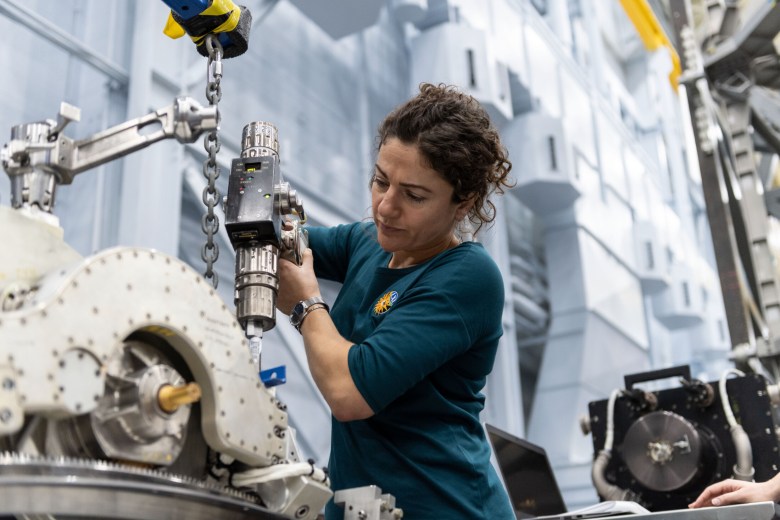Meta’s Landmark Antitrust Win Sparks Startup Acquisition Surge

UPDATE: In a groundbreaking decision, a federal judge has ruled in favor of Meta Platforms Inc., dismissing antitrust claims that its previous acquisitions stifled competition. This ruling could unleash a wave of startup acquisitions in Silicon Valley, reshaping the tech industry’s merger landscape as companies prepare to pursue aggressive deals once more.
The ruling, announced earlier today, signals an end to the stringent regulatory scrutiny that has deterred tech giants from making significant purchases. Analysts predict that this landmark victory may encourage firms like Meta to re-enter the market and capitalize on the startup boom, fostering innovation and growth in the sector.
According to reports from The New York Times, tech companies had been hesitant to acquire startups, fearing heightened antitrust enforcement under the Biden administration. This caution is expected to dissipate, as Meta’s win could embolden other firms to engage in what industry insiders are calling a “deal shopping” renaissance.
Silicon Valley is currently experiencing a resurgence in venture capital, with startups capturing over half of all U.S. venture funding in 2024. This influx of cash has driven innovative projects in fields such as AI and sustainable technology, making the region a beacon of opportunity. With Meta’s ruling, established companies may now scramble to integrate cutting-edge startups and bolster their competitive edge.
Gene Munster, an industry analyst, emphasizes the significance of Meta’s aggressive plans, which include projected capital expenditures of $60–$65 billion for 2025. This investment aims to enhance Meta’s AI infrastructure, potentially leading to a flurry of acquisitions as Big Tech seeks to enhance its capabilities through external partnerships.
Historically, Silicon Valley’s success has been tied to strategic acquisitions, with companies like Google and Apple rising to prominence through such deals. However, recent years have seen a slowdown in merger activity, as regulatory pressures mounted. The judge’s ruling dismisses claims regarding the monopolistic nature of past acquisitions like Instagram and WhatsApp, stating there was insufficient evidence of harm to competition, thus opening the floodgates for potential mergers and acquisitions.
Startups stand to benefit significantly from this ruling, as it could lead to more lucrative exit opportunities. With the tech ecosystem still thriving, founders in AI, biotech, and fintech may find themselves in high demand from larger firms. However, not all reactions are positive; recent layoffs at Meta, including 600 employees from its AI lab, raise concerns about internal challenges that could affect future acquisition strategies.
The broader implications of this ruling extend beyond U.S. borders. Internationally, experts speculate that this decision could ignite innovation in Europe’s AI sector, prompting increased investments. Yet, there is also caution, as reports suggest a potential rise in global antitrust challenges spurred by this landmark decision.
Despite the optimism, layoffs persist in the Valley. Reports from the Silicon Valley Business Journal indicate that Meta and other tech firms cut over 650 jobs in October 2025, reflecting ongoing economic volatility. Increased capital expenditures across tech giants, including Alphabet and Microsoft, are projected to grow by 43% in 2025, but this surge may also rekindle antitrust concerns.
As the tech landscape evolves, the upcoming TechCrunch Disrupt 2025 event, scheduled for October 27-29, will address the changing dynamics and the necessity of startups in Silicon Valley. Founders and investors will discuss the implications of the recent ruling and the future of mergers and acquisitions in a rapidly changing regulatory environment.
Looking ahead, analysts are closely watching potential deals like Meta’s rumored $14.3 billion acquisition of Scale AI, which could transform both search and AI landscapes. With the antitrust green light now in place, the tech industry may soon witness a wave of mergers targeting AI and chip startups, as companies race to secure their supply chains and enhance their competitive positions.
While the ruling opens new opportunities, experts caution that the environment remains fraught with complexities. Industry voices suggest a measured approach to deal-making, emphasizing the need for startups to carefully consider the balance between potential acquisition benefits and the desire for independence in this evolving landscape.
The innovation engine of Silicon Valley stands on the brink of a new era, with the potential for renewed growth and consolidation reshaping the tech landscape. As the dust settles on this landmark ruling, one thing is clear: the future of acquisitions in Silicon Valley is about to get much more exciting.






